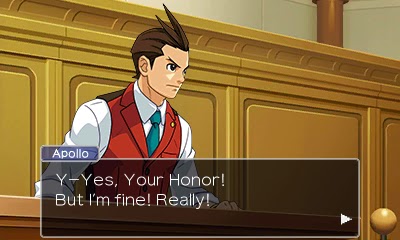An accurate depiction of courtroom drama or the legal system these games are not. Phoenix Wright has had to cross-examine a parrot, endure an onslaught of coffee-tossing and whip-cracking prosecutors, and then listen to a man ramble about his precognitive hemorrhoids. Even so, its use of character-driven storytelling and intricate relationships allows it to broach serious themes such as abuse of the legal system, blackmail, and the impact of the corrupt on youth. Each game shrewdly tells an arcing story throughout four or five court cases, making every episode feel worthwhile individually and as a piece of a grander whole.
Anime Editor













